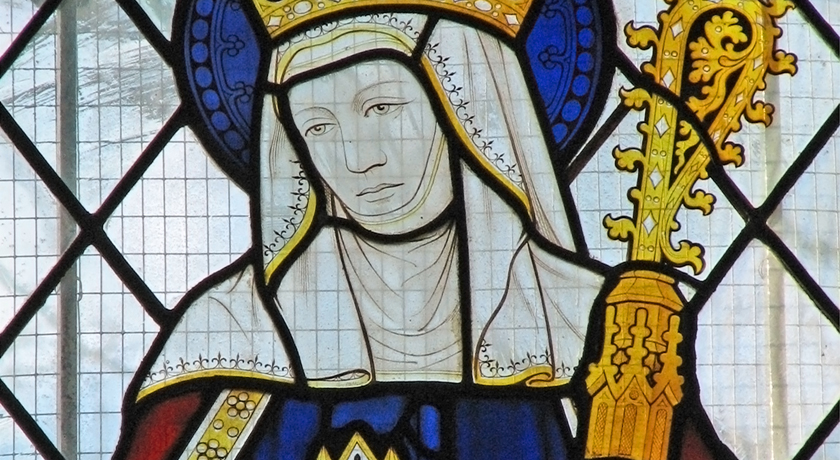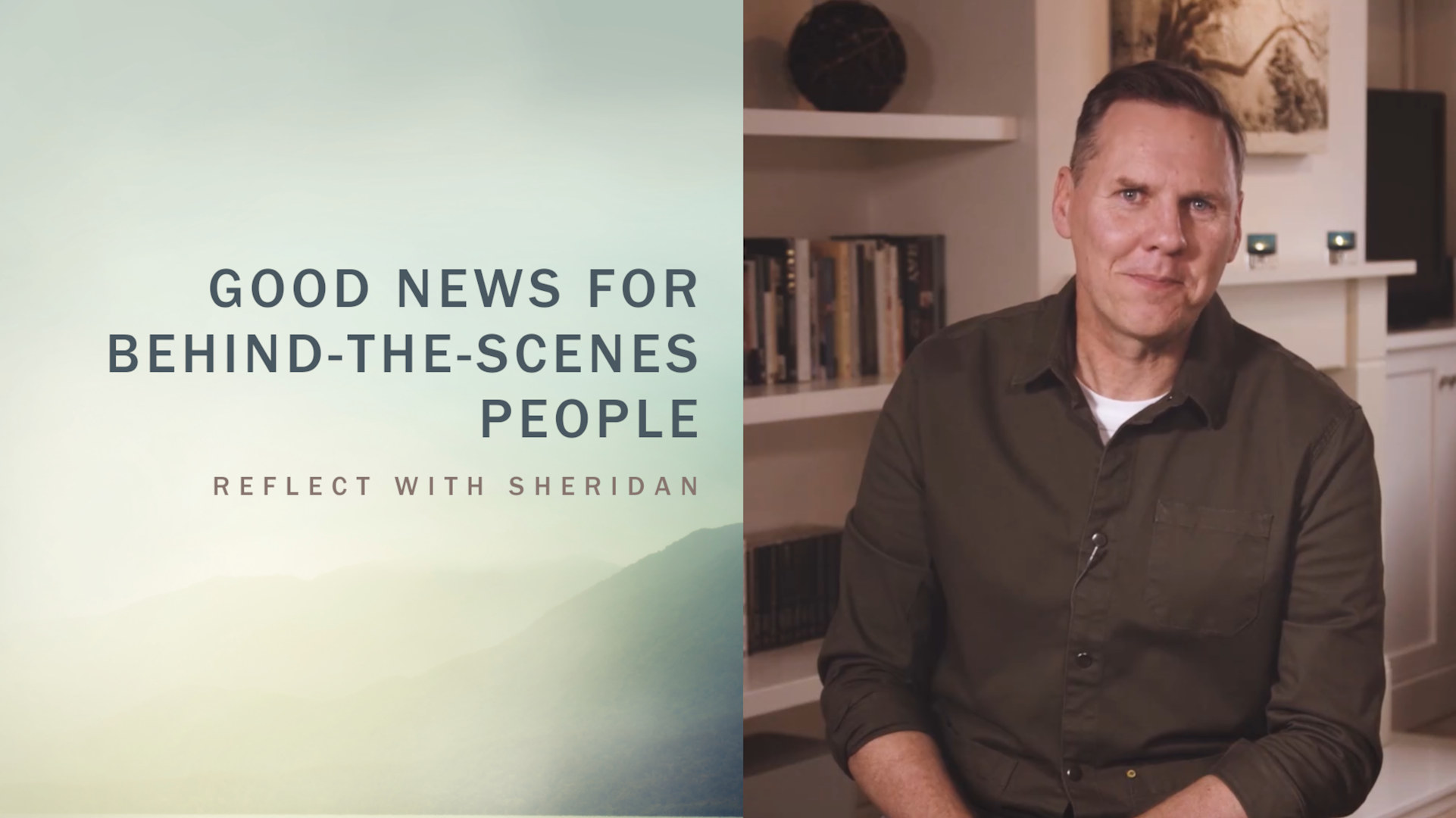This 7th-Century Saint Can Help You Discover Your Gifts
Photo: St Hilda of Whitby by Fr Lawrence Lew, O.P. (CC BY-NC 2.0, cropped)
When I was given the topic of ‘heroines’ for a BBC Radio 2 Pause for Thought segment recently, I knew I had to talk about the great seventh-century saint, Hilda. A profound teacher, patron of the arts and spiritual guide to both peasant and king, Hilda was a woman ahead of her time leading a mixed monastery of monks and nuns at Whitby in England’s north (now picturesque ruins). And the story I most love about her is her interaction with a farmhand named Caedmon. Through it we can learn how to discover our God-given dreams and gifts, and help others do the same.
Click To Listen
Podcast: Subscribe in iTunes | Right-click to download | Listen to Other Episodes
Pause for Thought: Heroines
When I heard that our Pause for Thought theme was ‘heroines’, I knew I had to talk about my favourite lady saint, Saint Hilda. Each one of us has a God-given talent, and Hilda can show us how to discover it.
In the seventh century Hilda was in charge of Whitby Abbey. One night one of her farmhands, a man named Caedmon, had an extraordinary dream. In the dream a man asked Caedmon to sing a song about creation. Being a farmer and not a singer, Caedmon shyly refused. But the man in the dream assured Caedmon he could do it, and as the dream progressed, Caedmon did compose a song about creation and the God who made it.
When he woke the next morning, Caedmon found he was able to recall the song in detail. He told his foreman about the experience, who then took him to see Hilda. Hilda listened carefully to Caedmon’s story then gave him a task: produce another song, this time based on a verse of scripture. Caedmon returned the next day with the new song.
Knowing now that something special was happening with Caedmon, Hilda told her scholars to teach him history and the Bible. Each day Caedmon was asked to write a new song. And each day, we’re told, Caedmon wrote lyrics with such ‘sweetness and humility’ they moved people to tears, to worship, and to change their lives.
Here’s why Hilda is my heroine today:
She took Caedmon seriously. It must have been a vulnerable step for a ‘lowly’ farmhand with no musical background to tell the renowned Hilda about his song. She could have laughed him off. She could’ve crushed him with indifference. Instead, she listened carefully.
Hilda tested Caedmon’s talent. We do no one a favour by telling them to pursue gifts they don’t have. Hilda got Caedmon writing new songs to see what was in him. Sure enough, the songs were there.
And Hilda became Caedmon’s patron, giving him opportunities to develop and share his talent with the world. Today the song from his dream, known as Caedmon’s Hymn, is the oldest Old English poem we have in existence. If it weren’t for Hilda, we may never have it.
Someone who’ll listen to our dreams, help nurture our talents, and champion us as we step out to use them—I think each of us needs a Hilda in our lives.
***
Subscription Links
Subscribe to More Than This and never miss an episode.
![]() Subscribe on your iPad or smartphone
Subscribe on your iPad or smartphone
Your Feedback
Want to respond to this podcast? Leave a comment below or call me using the ‘Send Voicemail’ button. Please also rate and share this podcast on iTunes to help others discover it. Thanks!






Amy Robinson
I love Caedmon’s hymn! I used to be able to recite it in Anglo-Saxon (I tried just now, but could only manage the first line!) A few years ago I had to tell the story of his dreaming it to a large gathering of children in Ely Cathedral, and I ended up writing a version of it to the tune of ‘twinkle, twinkle, little star’ for them to learn. It began “Now we praise our heavenly king, who created everything…”
But I never knew this about Hilda! Or at least, the abbess in the story wasn’t named. I shall have to find out all about her now, and will definitely include her if I ever have to tell it again.
Sheridan Voysey
I can imagine you doing a brilliant job of that, Amy! Your retelling would be full of colour.
Tania Harris
Amen to that Sheridan! Thanks for sharing
Sheridan Voysey
This one’s right up your alley, Tania.
Tania Harris
totally! Will share it with my tribe this week…
Josh
My wife is my St. Hilda (http://wp.me/p2mw61-1vW). Thank you for sharing this story, Sheridan!
Sheridan Voysey
Nice piece, Josh. Aside from the nice words about your wife, I did like this line: ‘I started writing quirky stories about a squirrel and his invisible roommate.’
Now there’s a teaser!
Rose Dickens Rivers
I would like a copy of the books! Please I have no iPhone or tablet. Need books.